Lokesh Lohiya

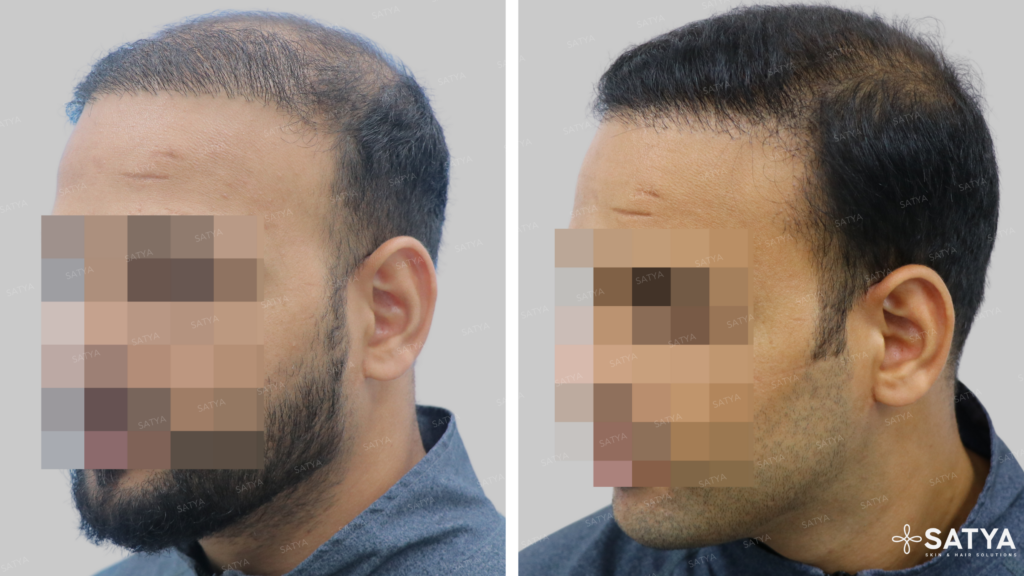
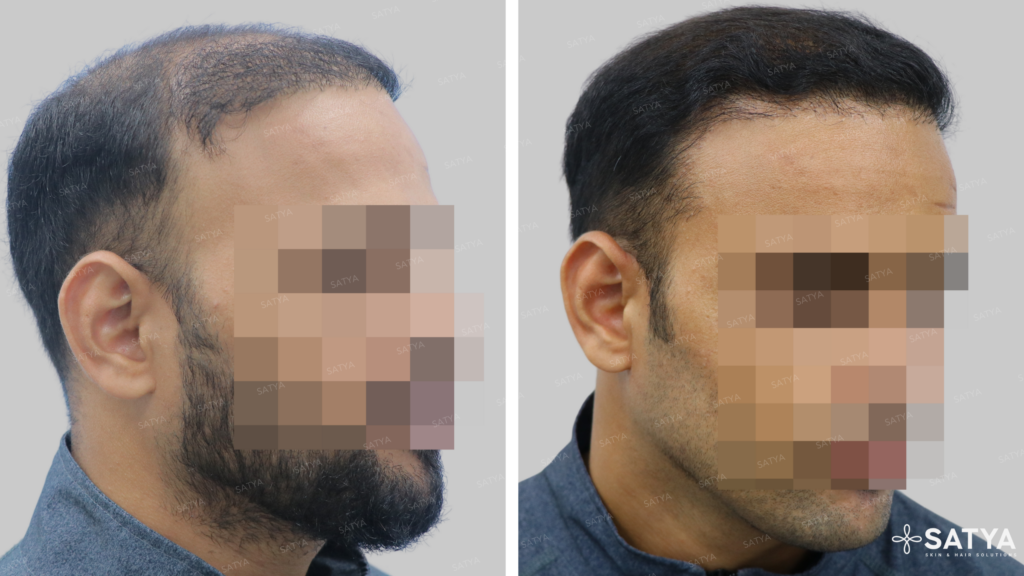
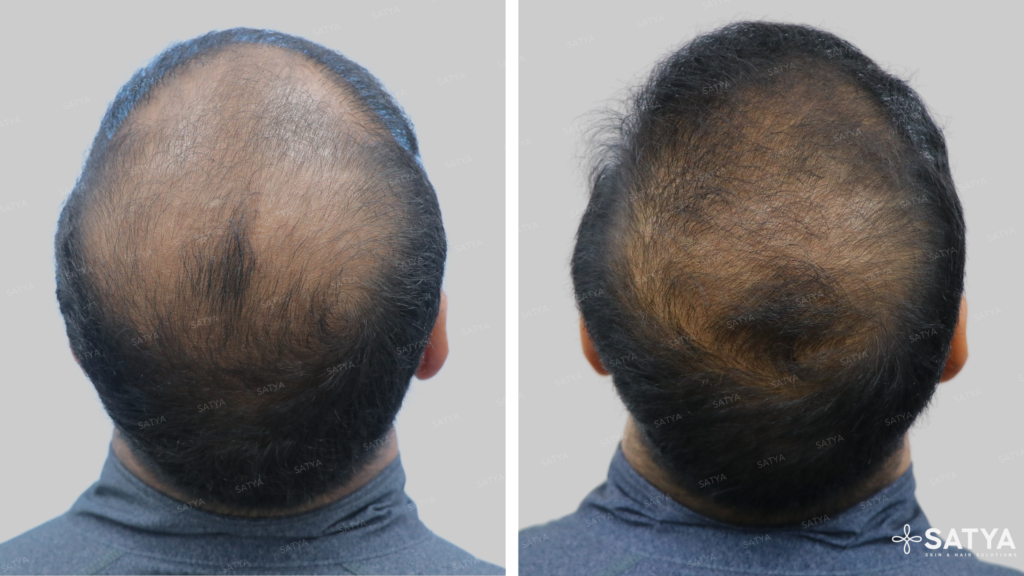

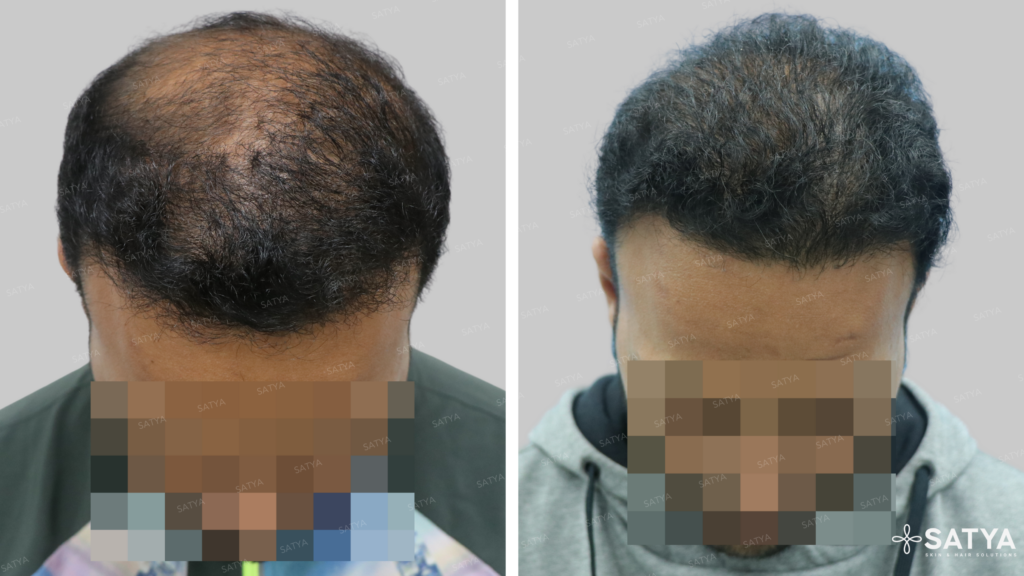
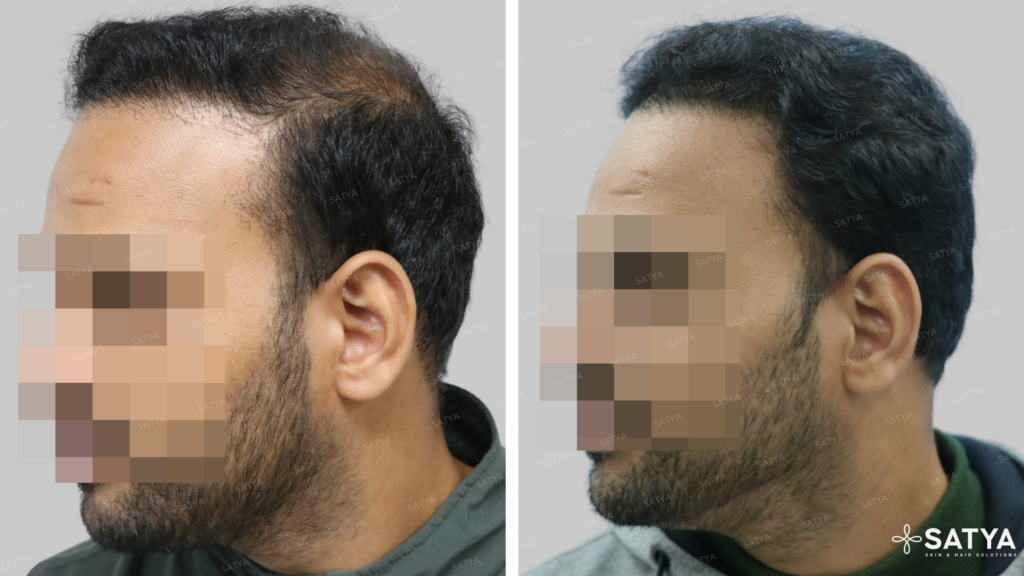

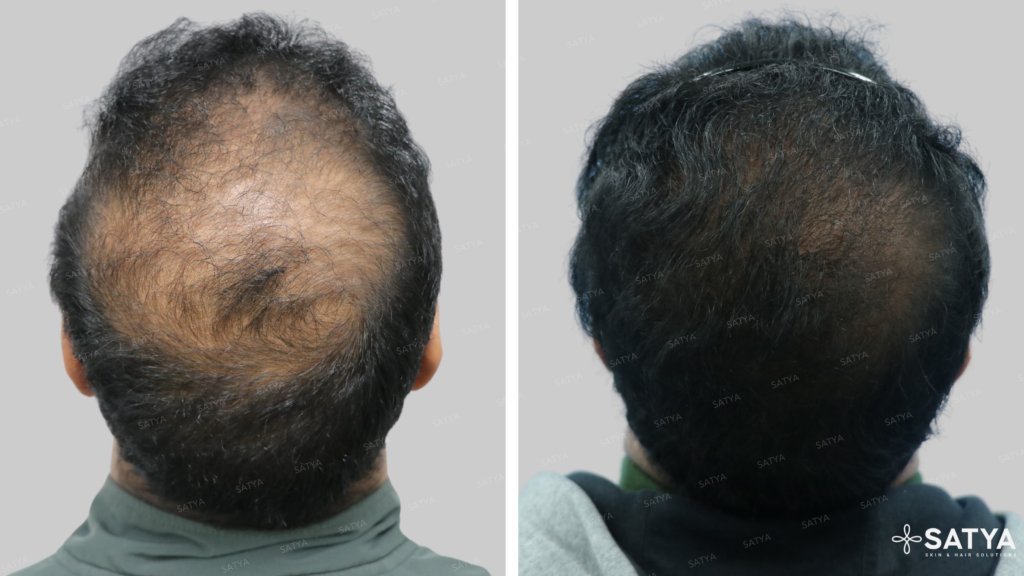
At Satya Skin & Hair Solutions, co-founded by Dr. Shail Gupta and Dr. Ruchi Agarwal, we are
dedicated to providing ethical and effective hair restoration services. With over 40 years of
combined experience, we focus on transparency, skill, and long-term planning. Today, we share the
story of Lokesh Lohia, whose journey underscores the importance of informed decisions and careful
planning in hair transplant surgery.
Lokesh Lohiya Hair Transplant Journey
The Initial Struggles
Lokesh Lohia had already undergone a hair transplant before coming to us, which failed miserably.
Initially, it did not look too bad because of the medications he was advised to take post-transplant.
However, this case highlights what a bad hair transplant can turn into, especially when patients are
misled by advertisements, fake promises, celebrity endorsements, or low prices.
Unsatisfactory Results
Lokesh’s initial transplant left him with a poorly shaped hairline and incorrect angles and directions
of graft placement. Repair surgeries are challenging, requiring precision and patience. Extracting the
transplanted hair and redesigning the hairline were necessary steps to correct the previous work.
The Role of Medication
Lokesh was initially on a daily dose of 1mg finasteride and twice-daily application of 10% minoxidil.
These medications masked the poor transplant results. Once he stopped the medication, the
inadequacies of his first transplant became evident. This highlights how finasteride can exaggerate
transplant results.
The Solution at Satya
We advised Lokesh to take just 1mg/week of finasteride, a significantly reduced dose, to sustain his
existing hair. The hairline was redesigned, considering his age, current pattern of hair loss, and
progressing baldness. The difference in the hairline and overall appearance was remarkable.
Reflecting on the Journey
Lokesh understood the difference between a genuine transplant performed with surgical expertise
and a subpar transplant masked by medication. The major issues he faced included a lack of clarity
on the role of medication, the unrealistic expectations set by his previous clinic, and the incorrect
technique used.
Details Of Hairline
 Before Surgery
Before Surgery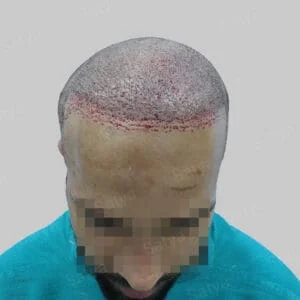 Immediate
Immediate 1 days
1 days 6 month
6 month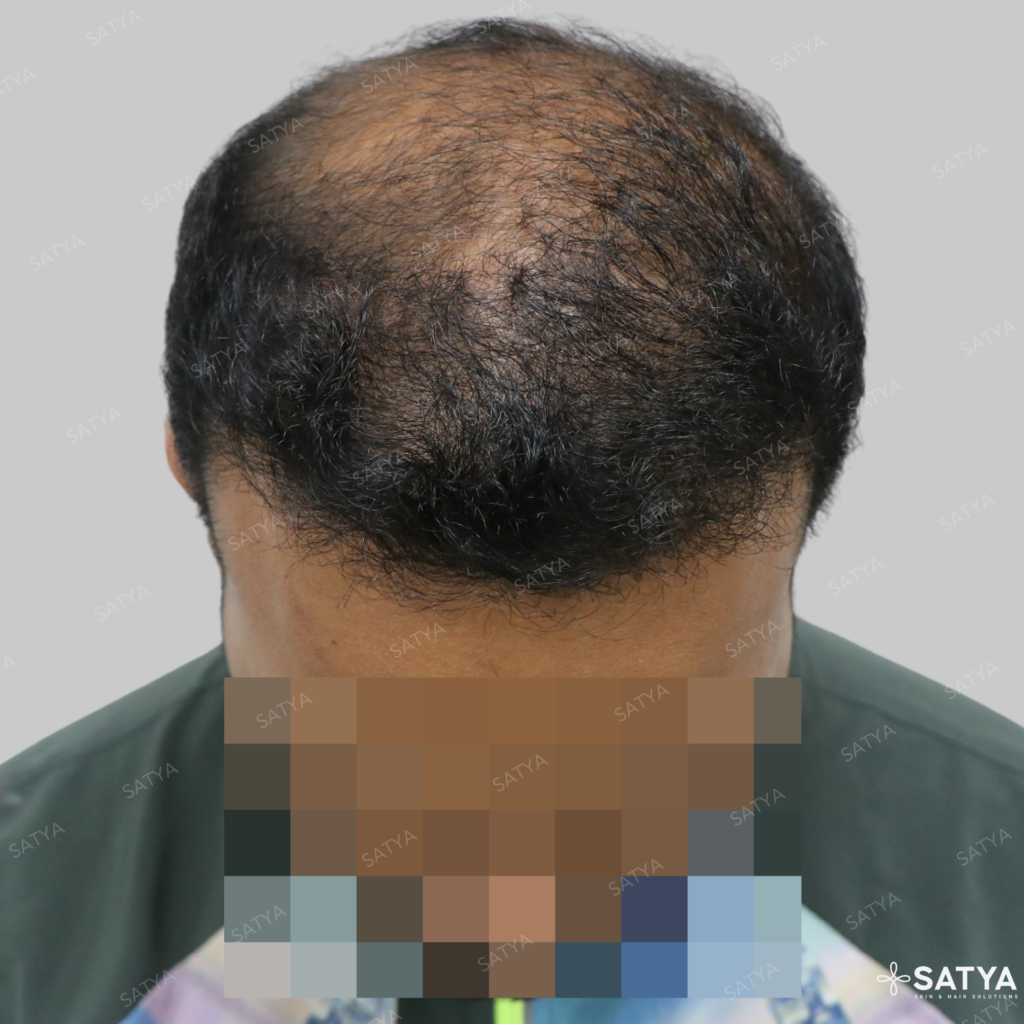 Before 2nd surgery
Before 2nd surgery  Immediate 2nd Surgery
Immediate 2nd Surgery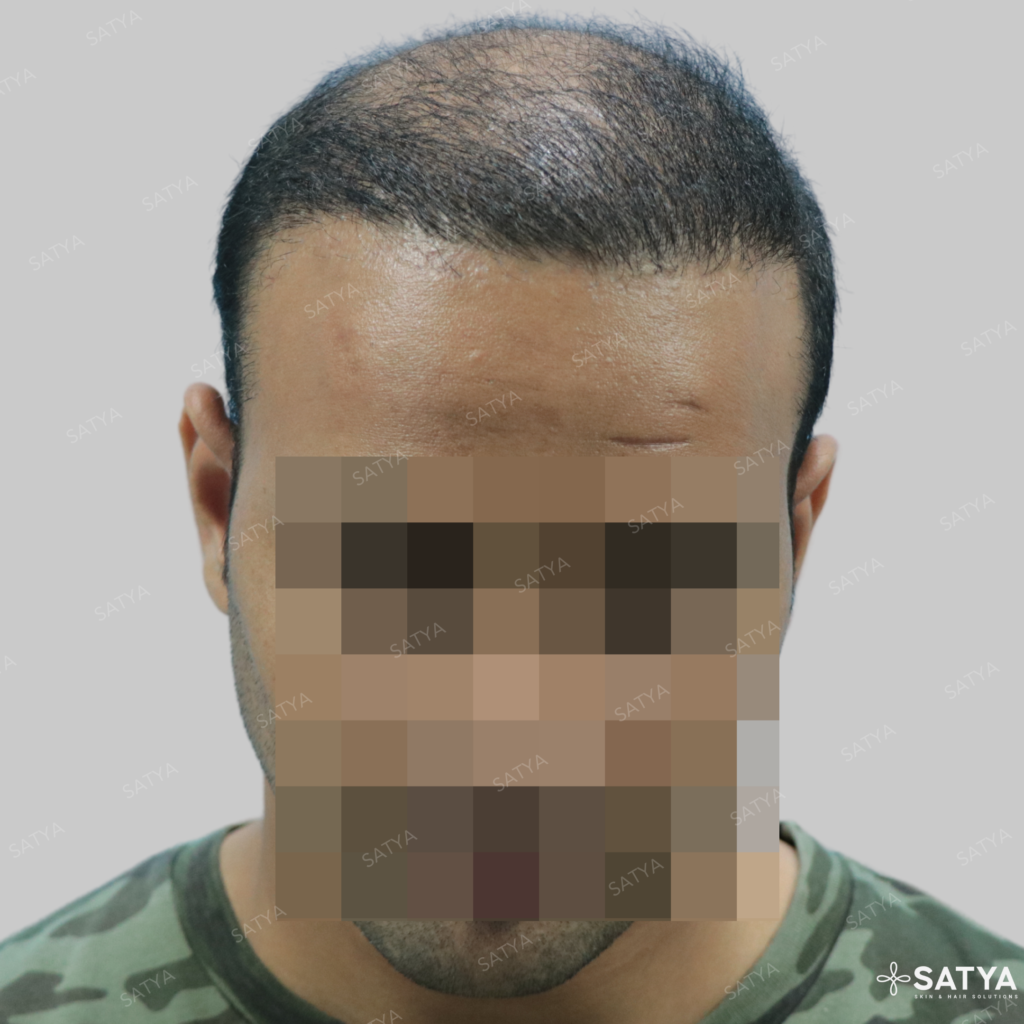 1 month 2nd Surgery
1 month 2nd Surgery 2 month 2nd Surgery
2 month 2nd Surgery 3 month 2nd Surgery
3 month 2nd Surgery 7 month 2nd Surgery
7 month 2nd SurgeryFront View
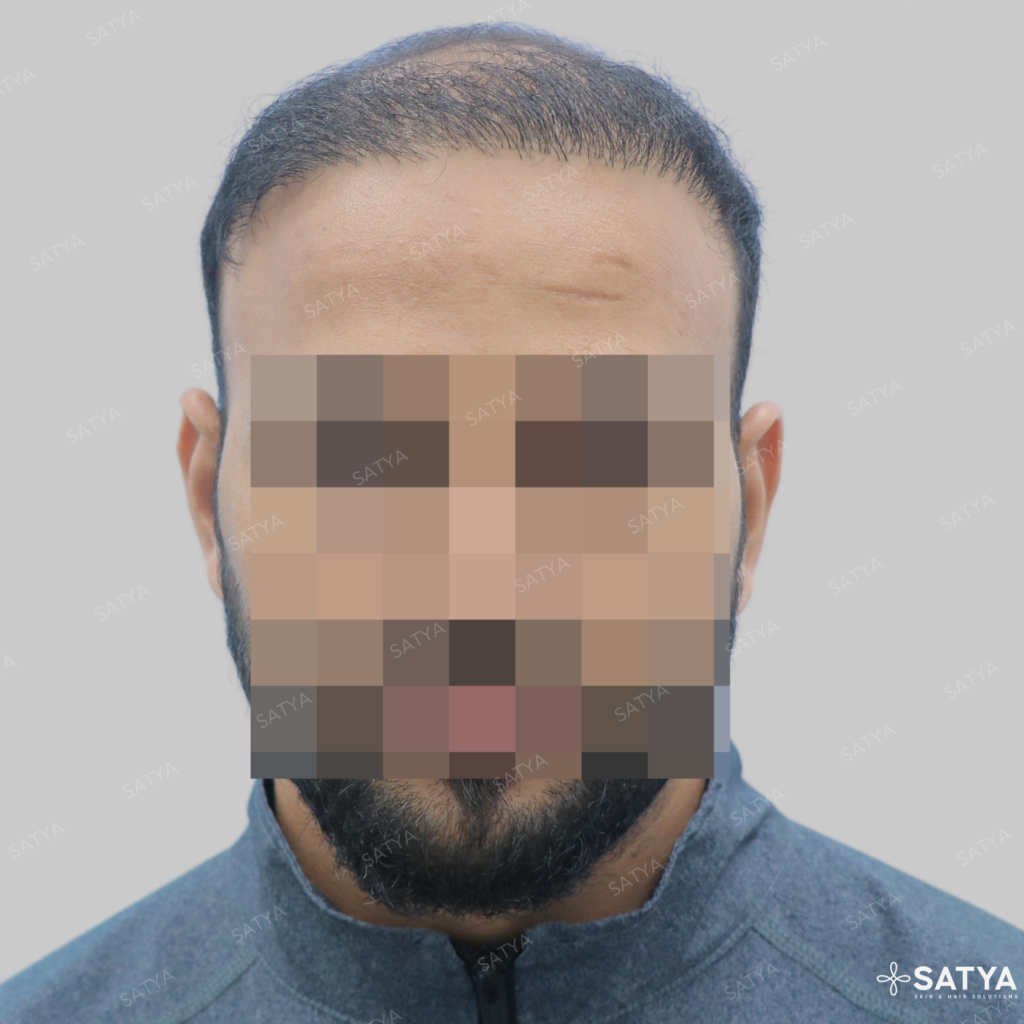 Before Surgery
Before Surgery Immediate
Immediate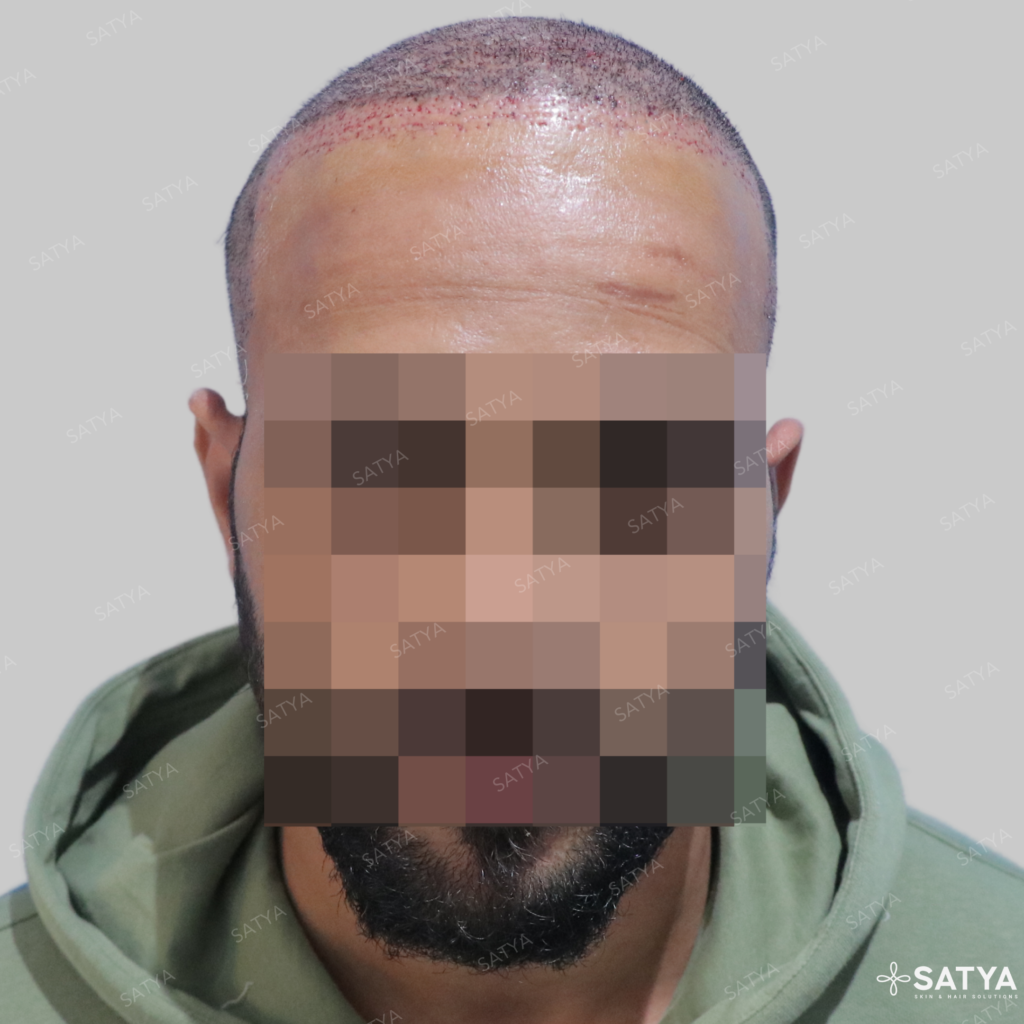 1 day
1 day 15 days
15 days 1 month
1 month 6 month
6 month Immediate 2nd Surgery
Immediate 2nd Surgery 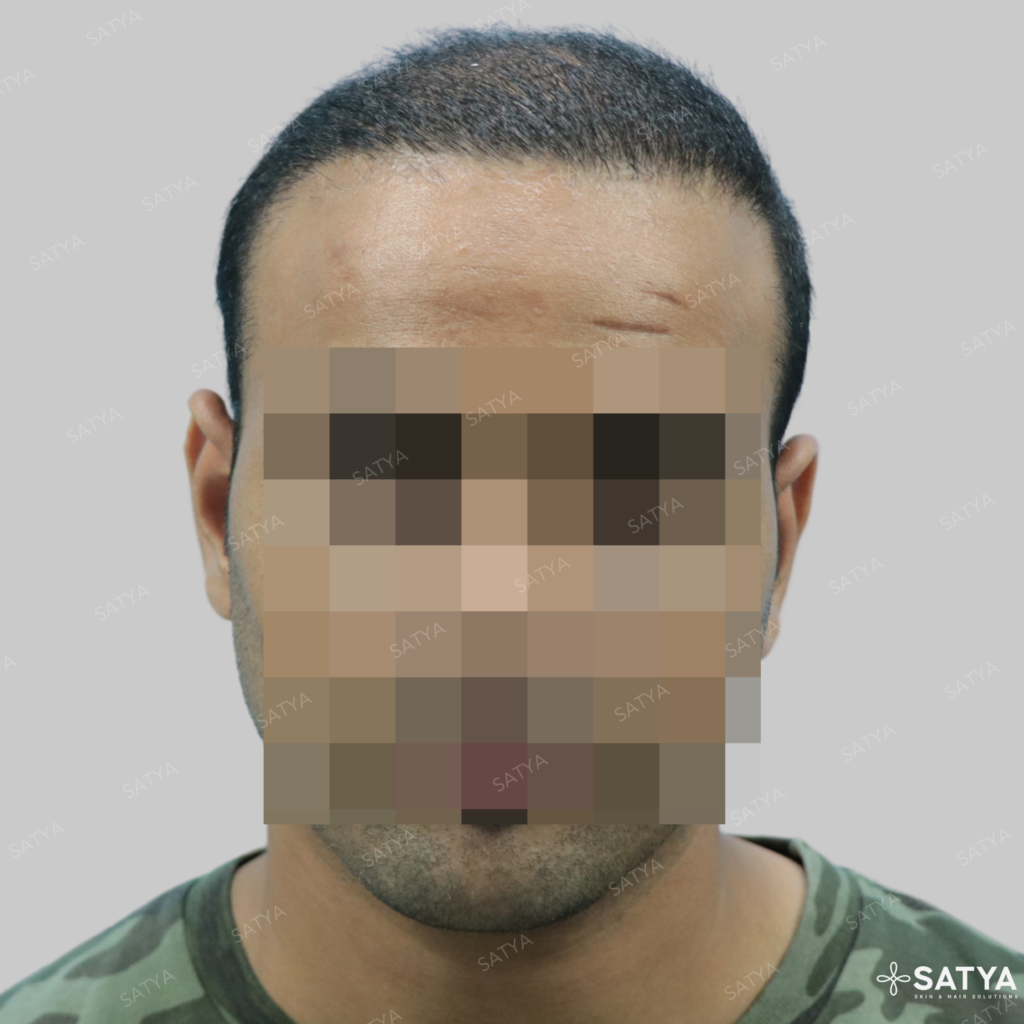 1 month 2nd Surgery
1 month 2nd Surgery  2 months 2nd Surgery
2 months 2nd Surgery 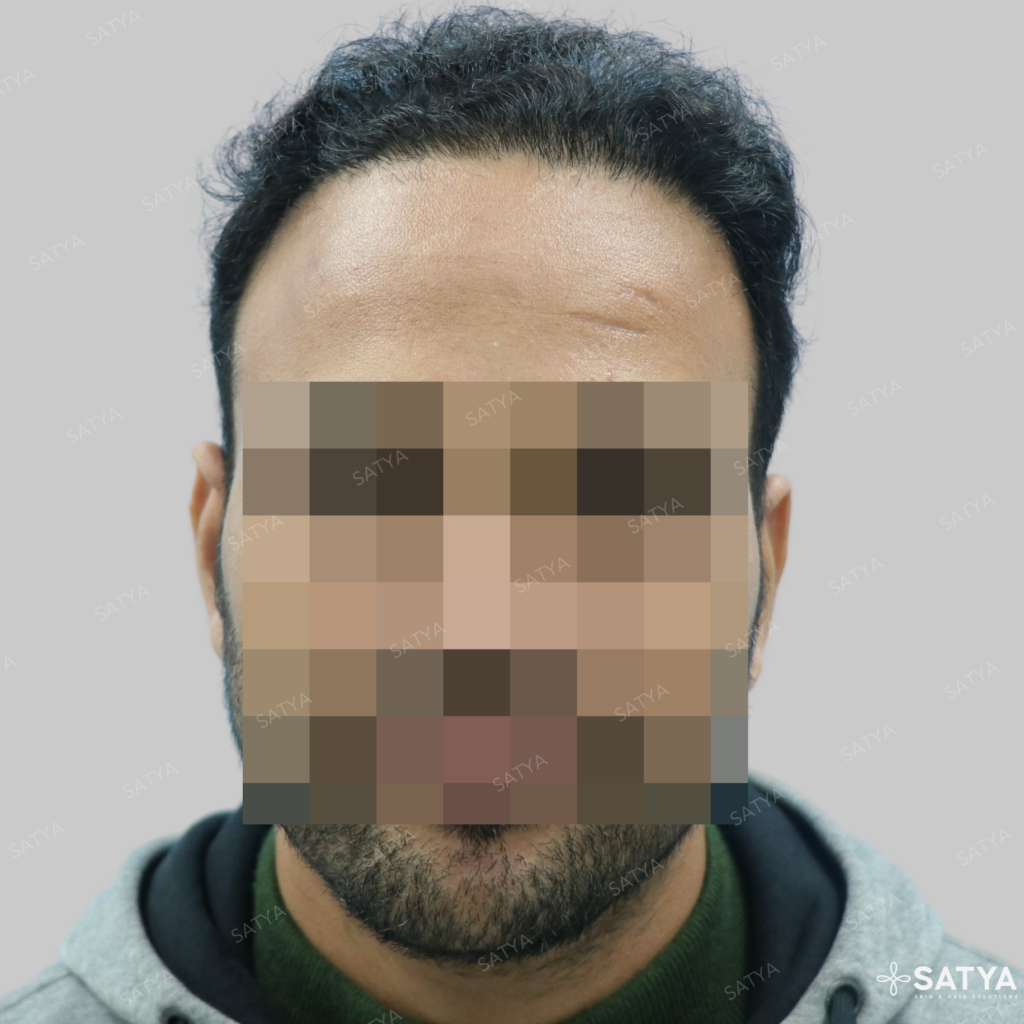 7 months 2nd Surgery
7 months 2nd Surgery Left View
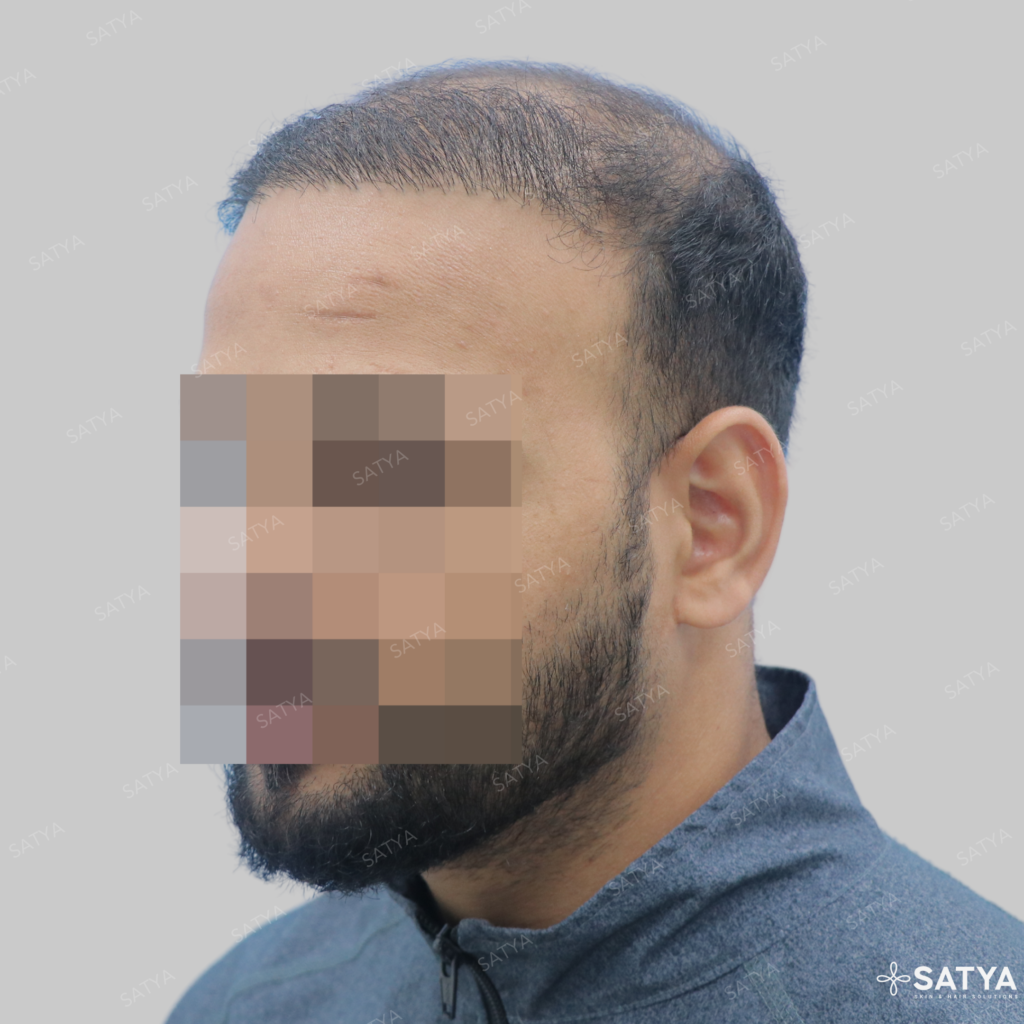 Before Surgery
Before Surgery 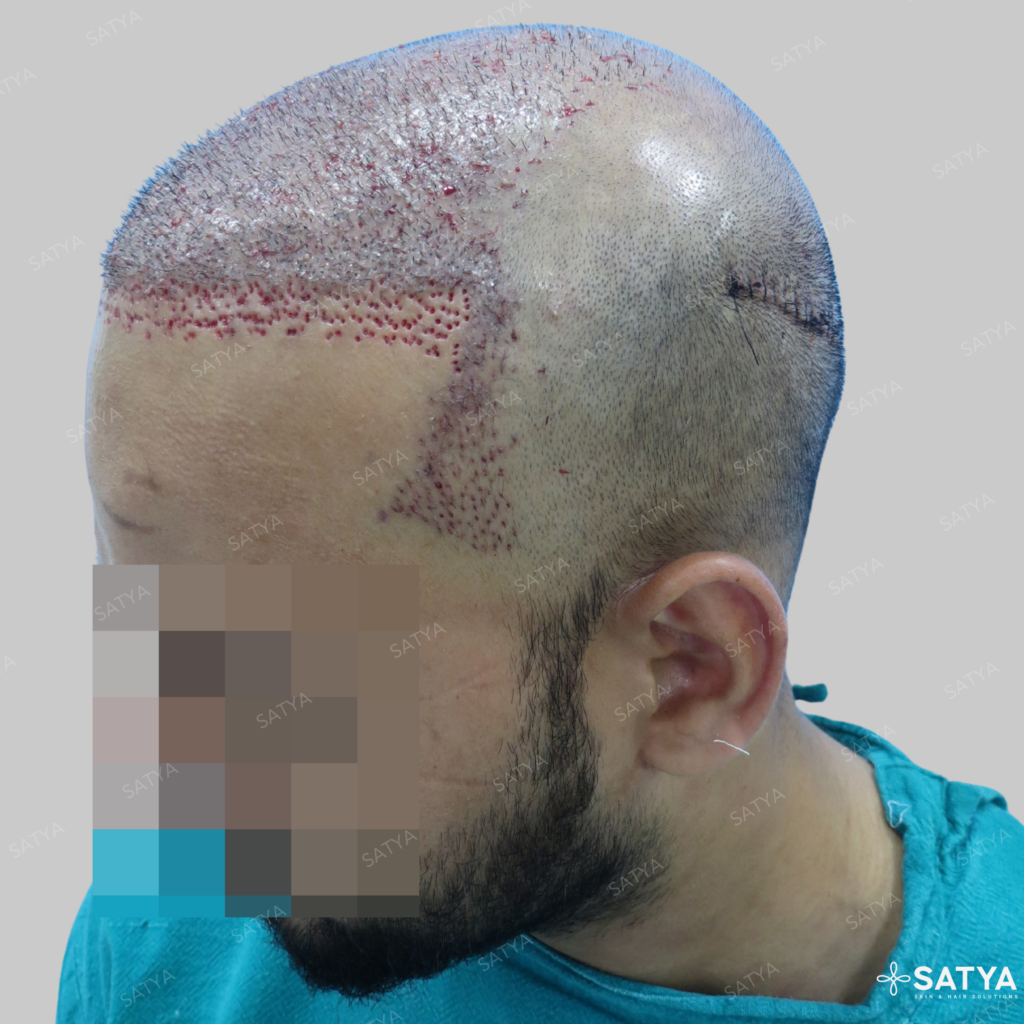 Immediate
Immediate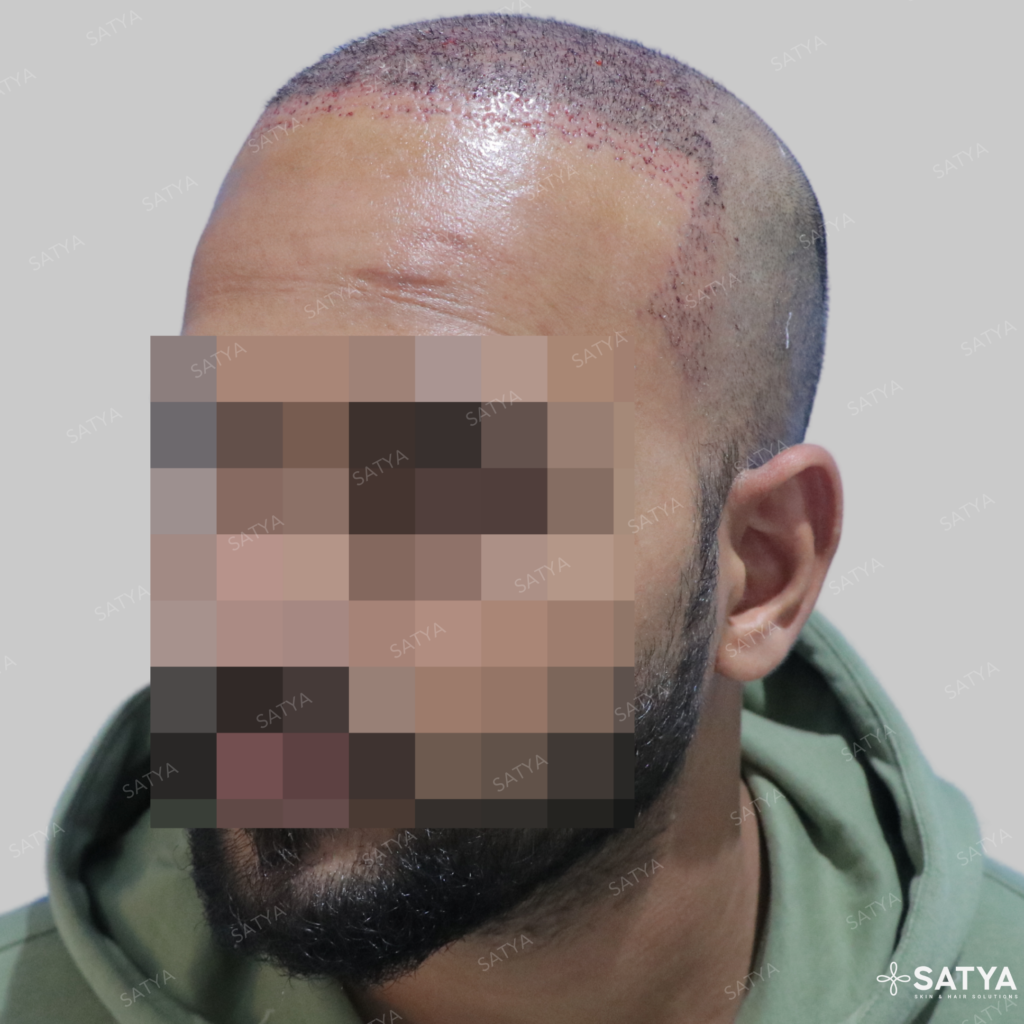 1 day
1 day 15 days
15 days 6 month
6 month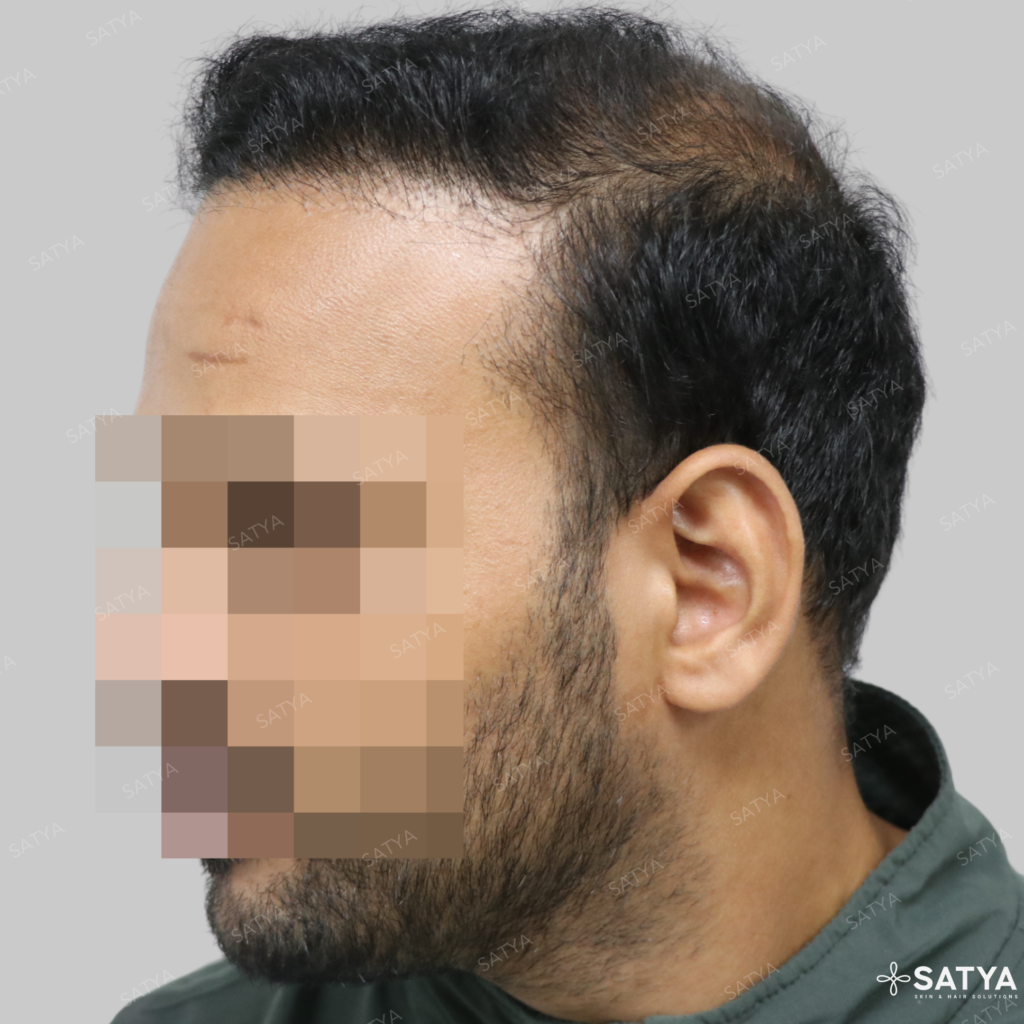 Before 2nd Surgery
Before 2nd Surgery Immediate
Immediate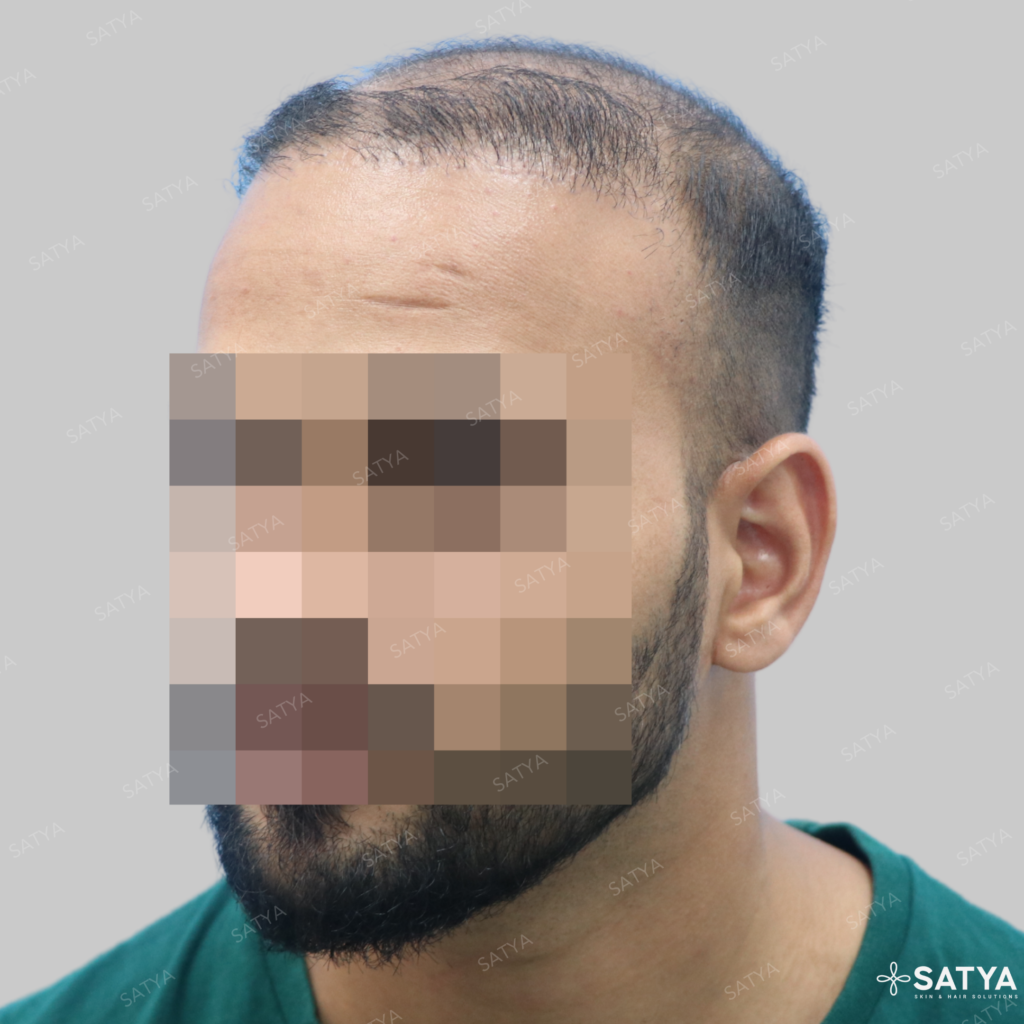 1 month 2nd Surgery
1 month 2nd Surgery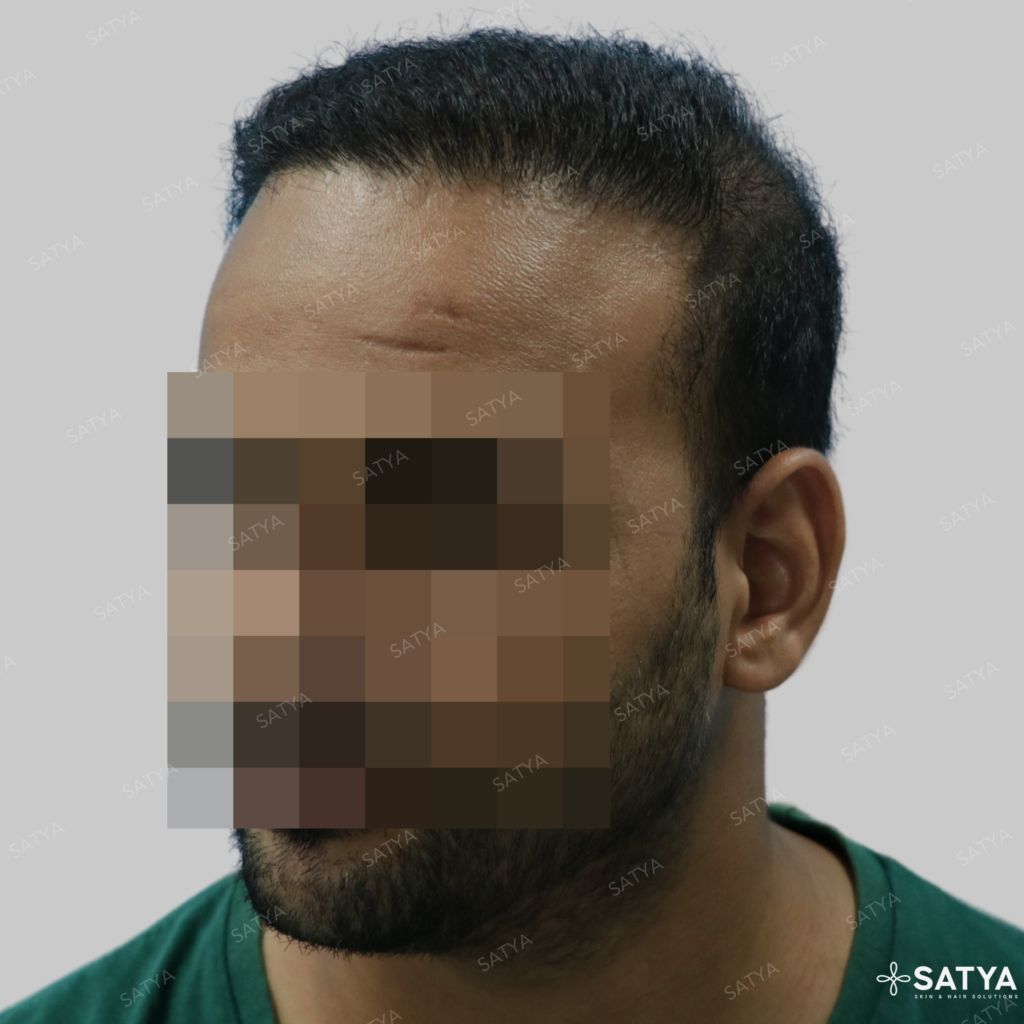 2 month 2nd Surgery
2 month 2nd Surgery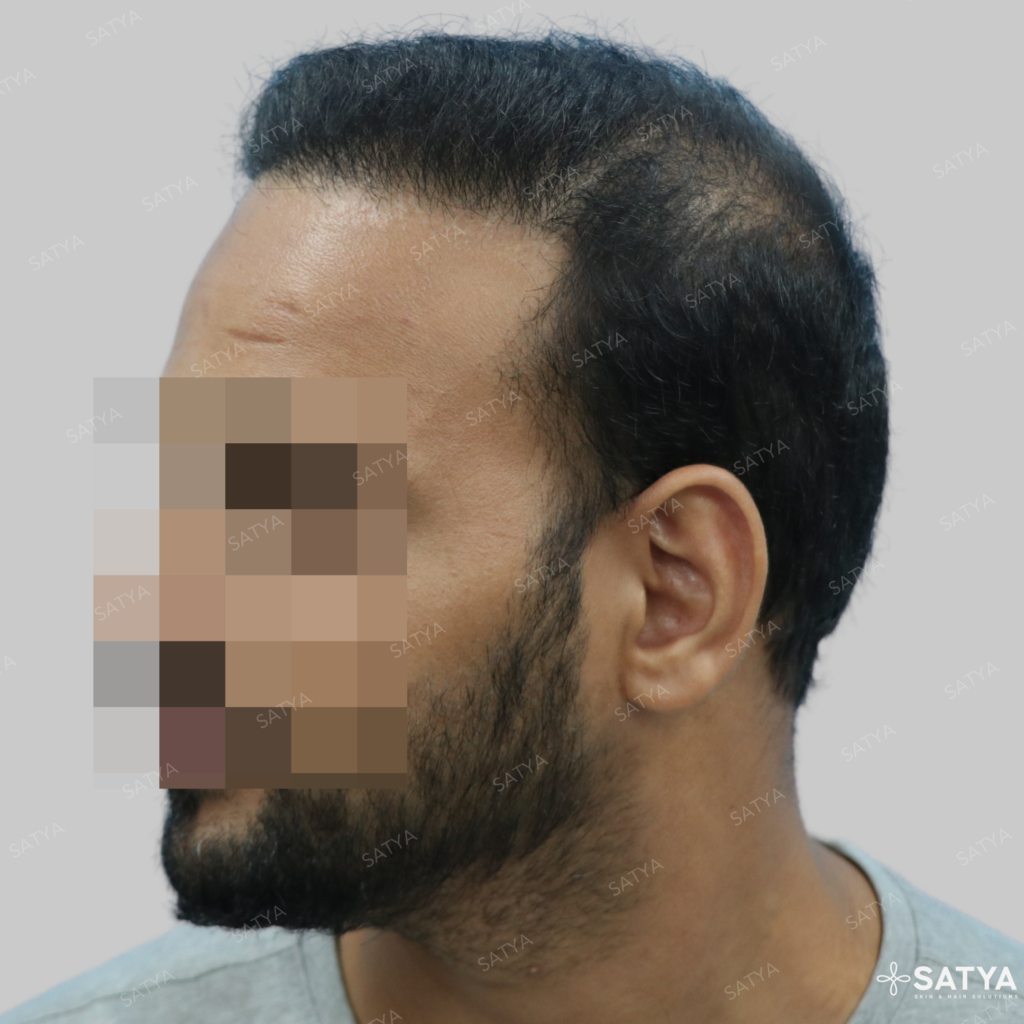 3 month 2nd Surgery
3 month 2nd Surgery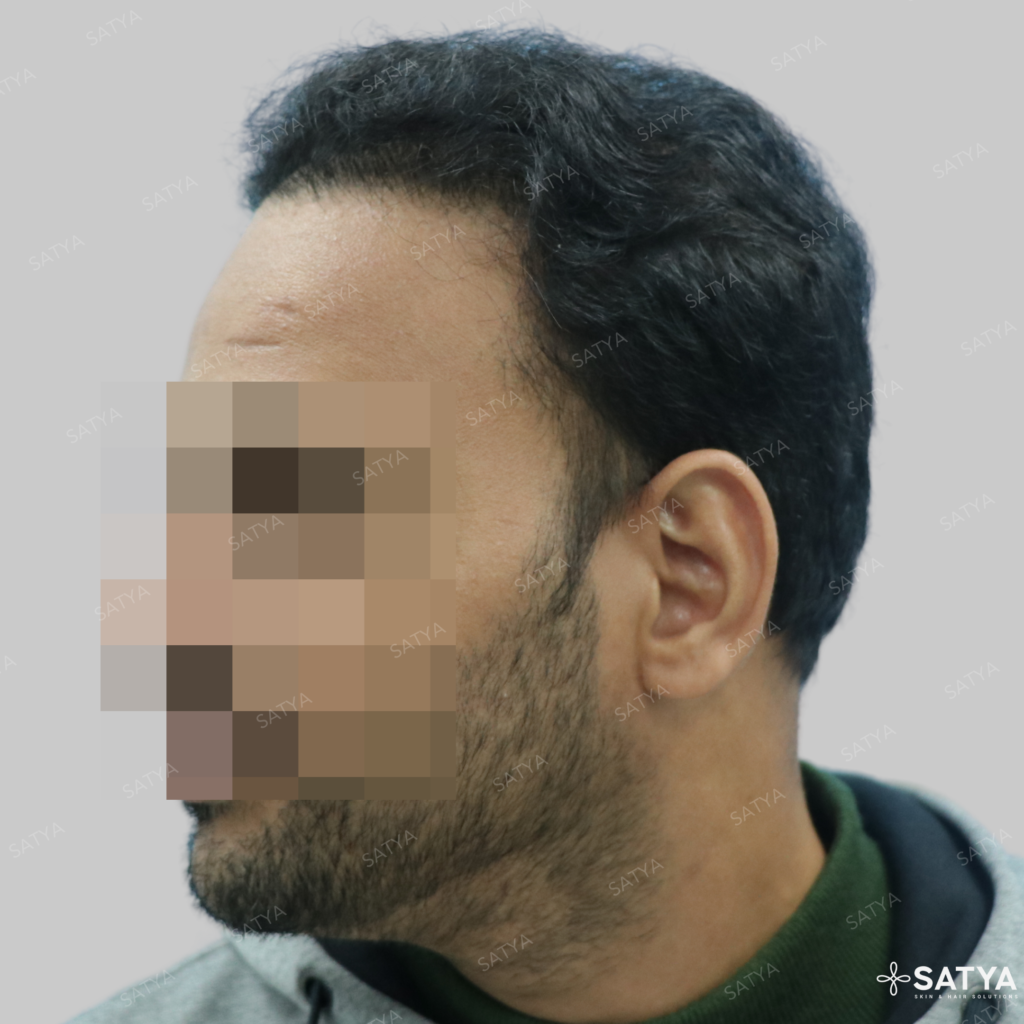 7 month 2nd Surgery
7 month 2nd SurgeryRight View
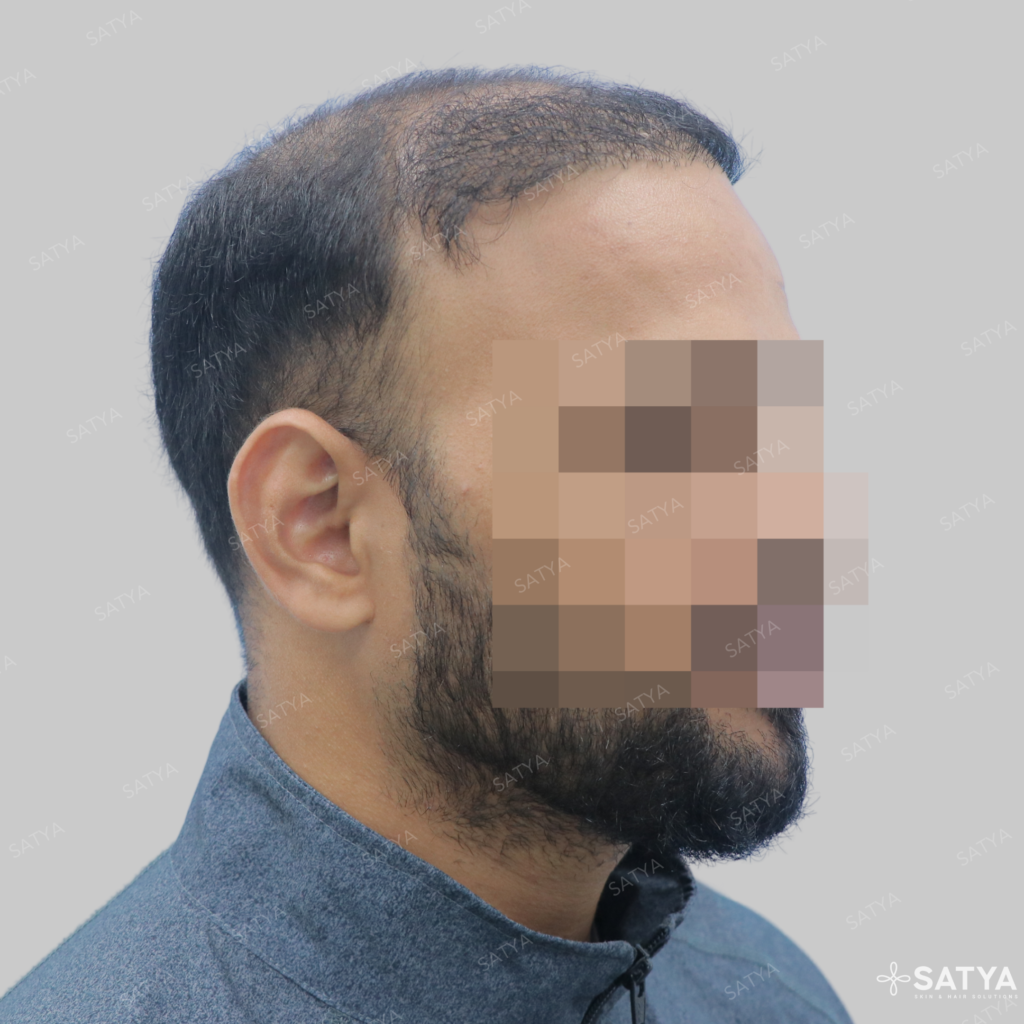 Before Surgery
Before Surgery Profile Title
Profile Title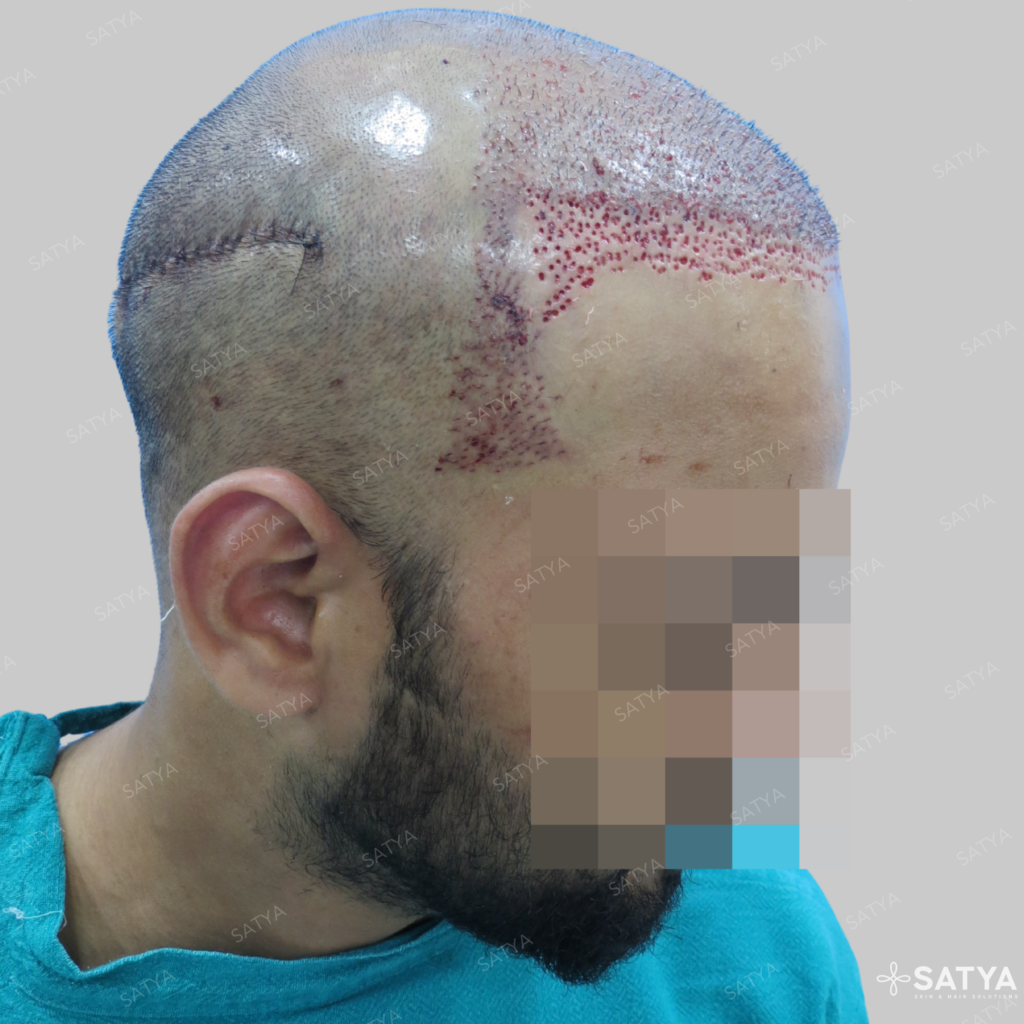 Immediate
Immediate 1 Day
1 Day 6 month
6 month Immediate 2nd Surgery
Immediate 2nd Surgery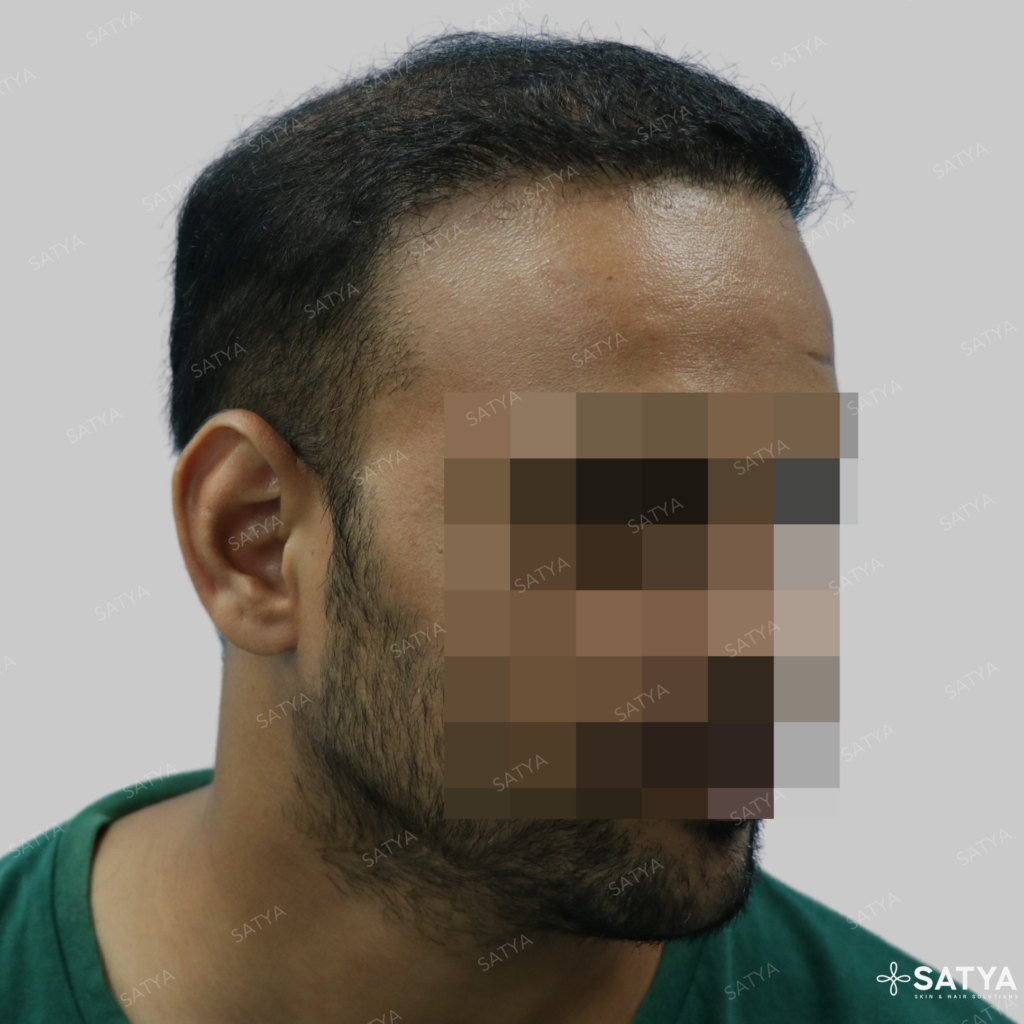 2 month 2nd Surgery
2 month 2nd Surgery 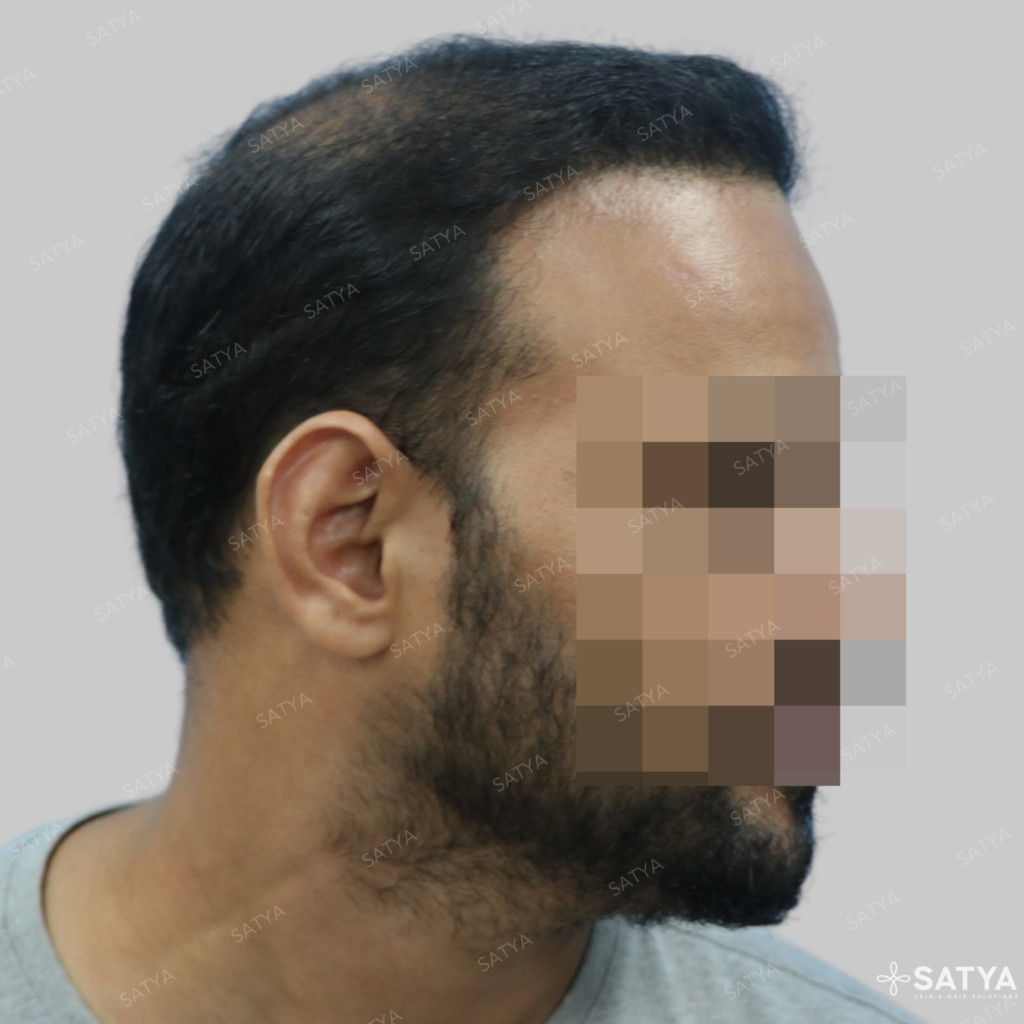 3 month 2nd Surgery
3 month 2nd Surgery 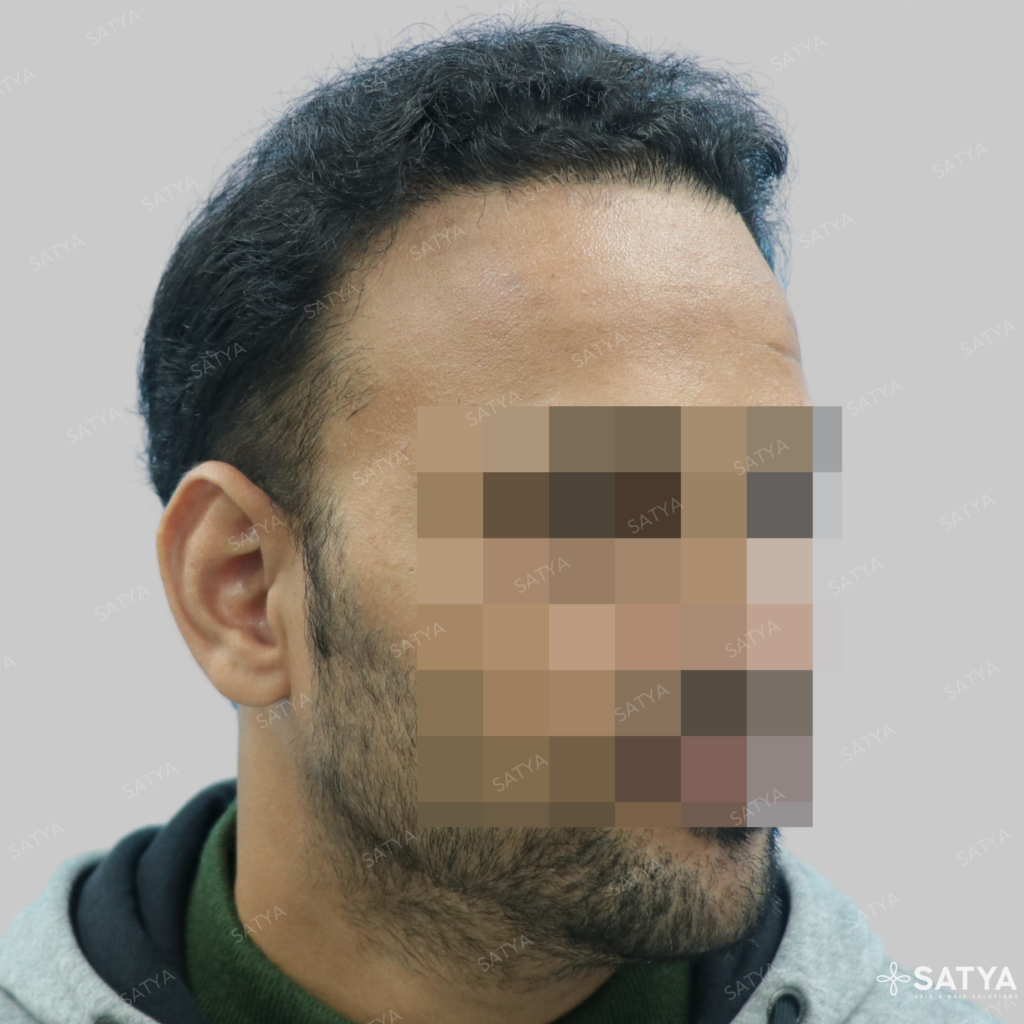 7 month 2nd Surgery
7 month 2nd Surgery Back View
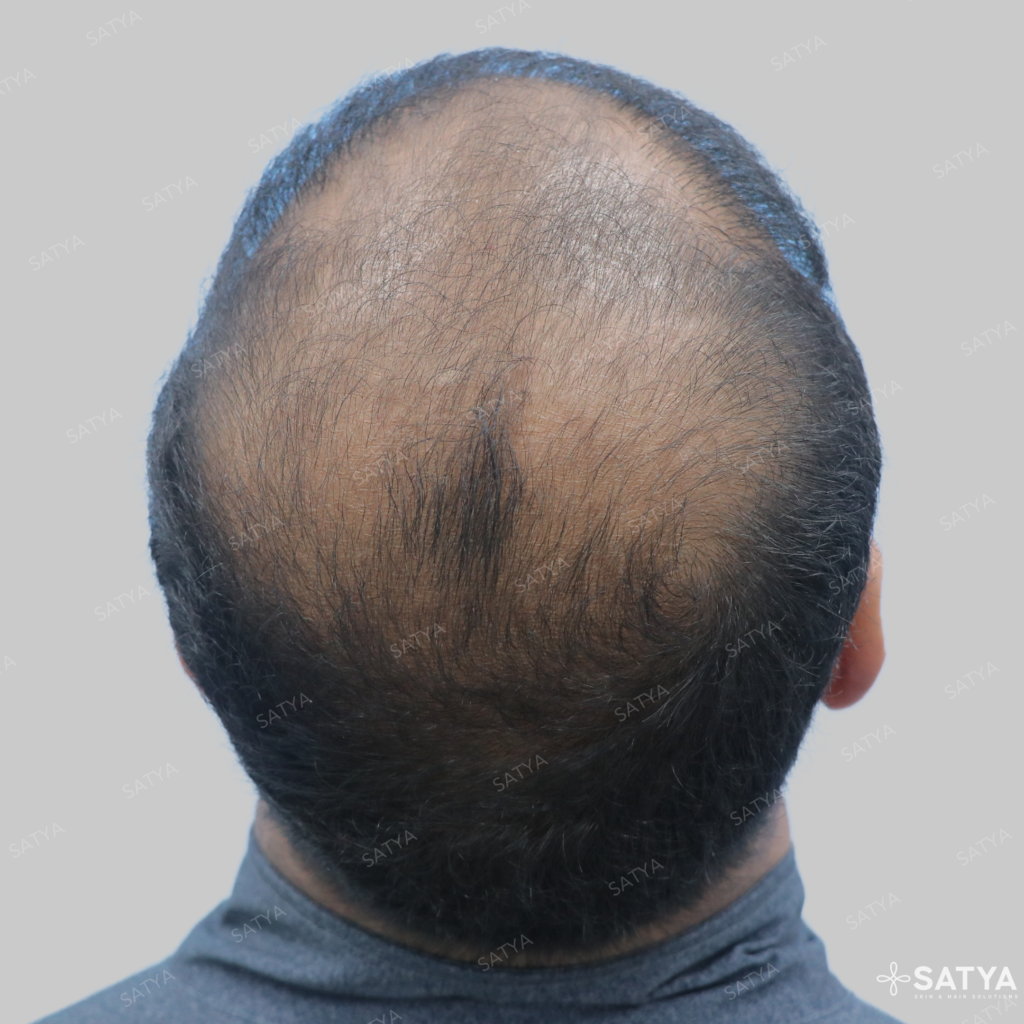 Before Surgery
Before Surgery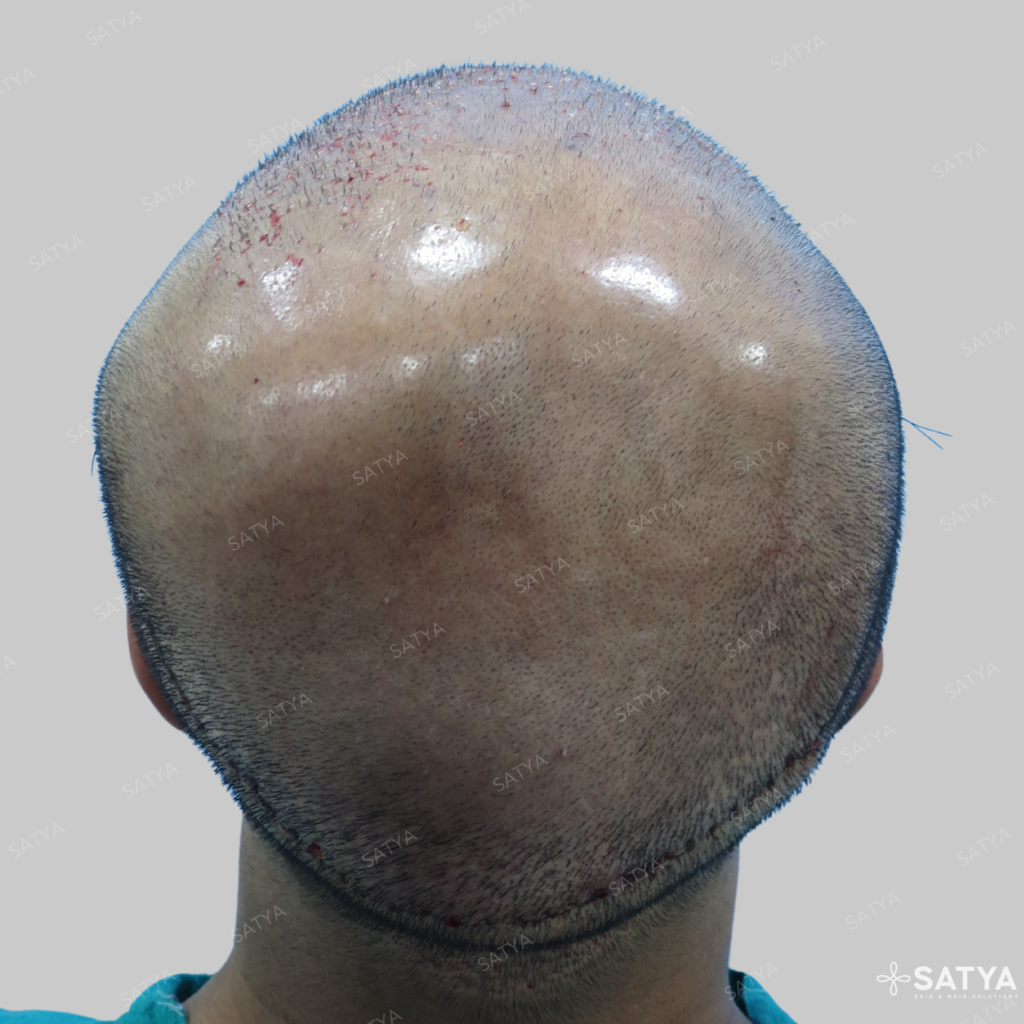 Immediate
Immediate 1 day
1 day 15 Days
15 Days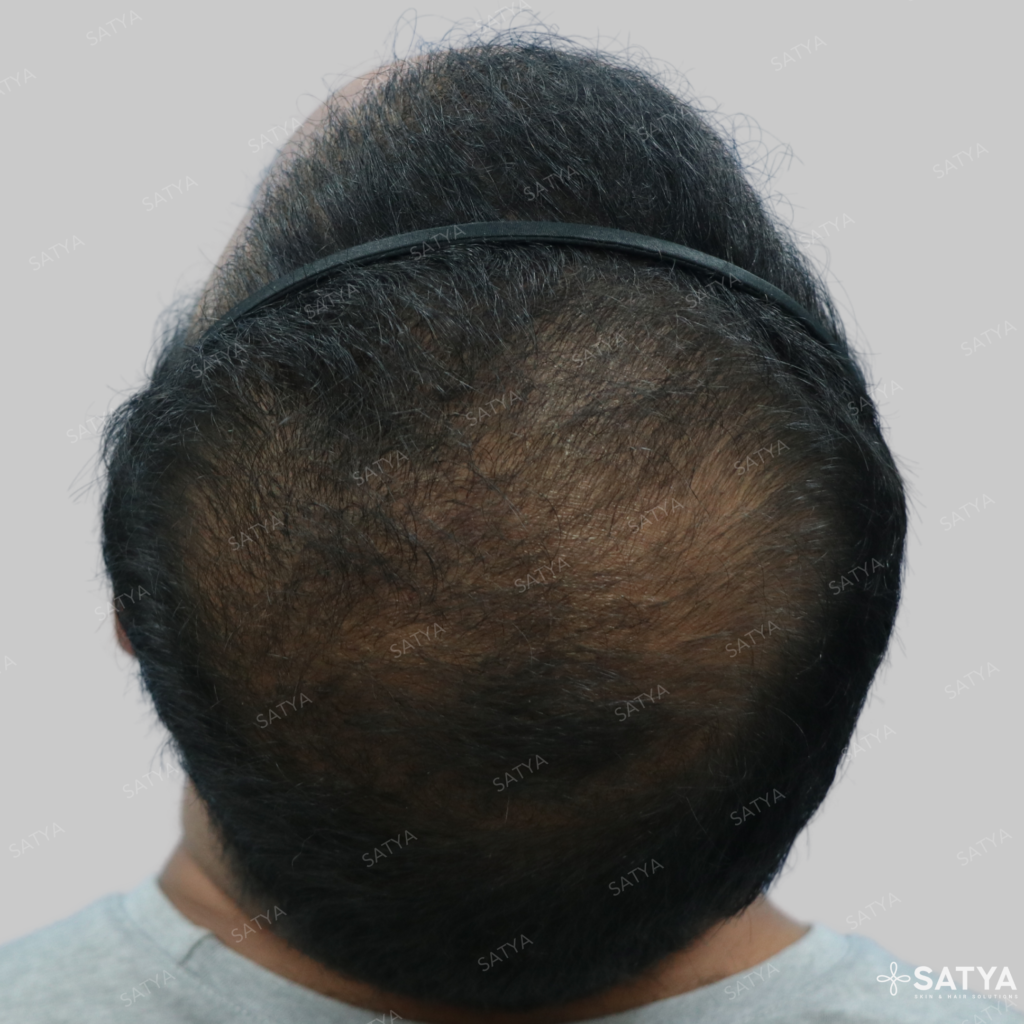 After 3 month 2nd Surgery
After 3 month 2nd Surgery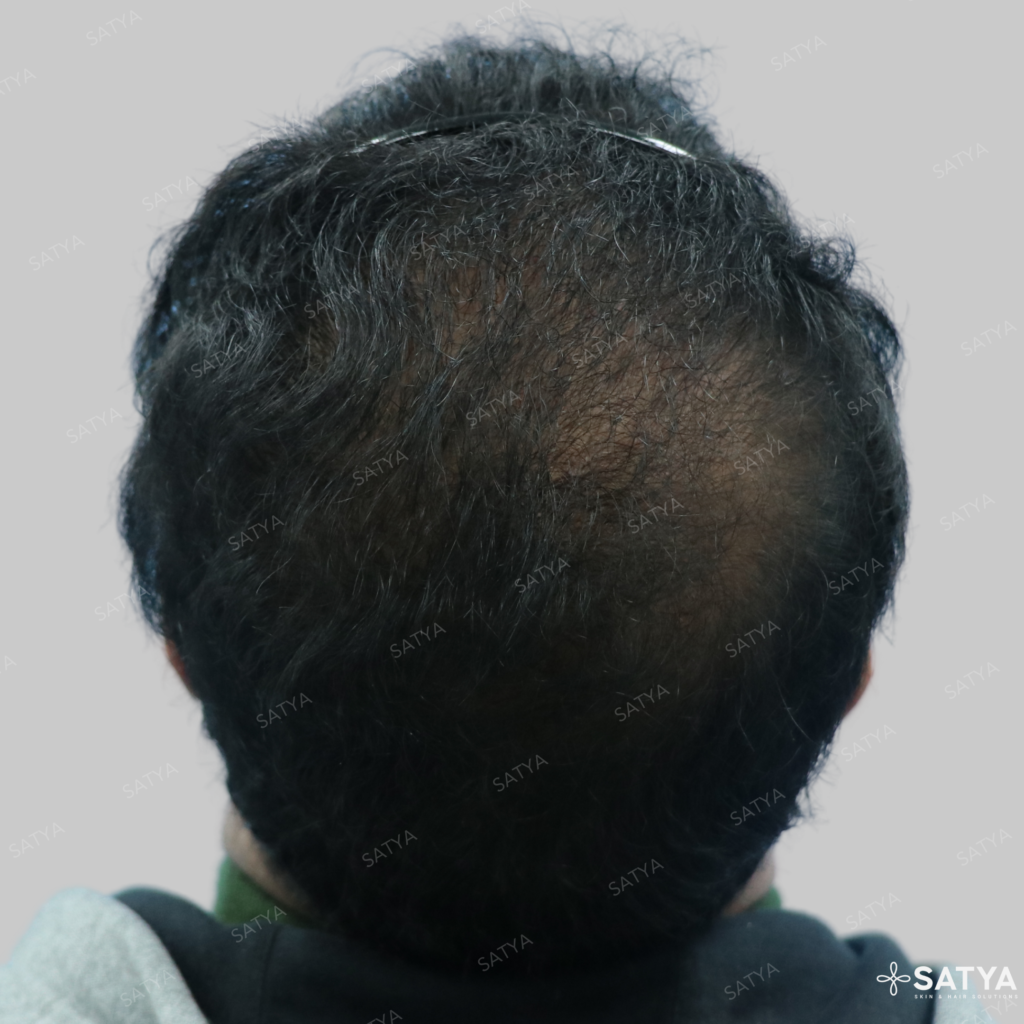 After 7 month 2nd Surgery
After 7 month 2nd SurgeryDonor Usage
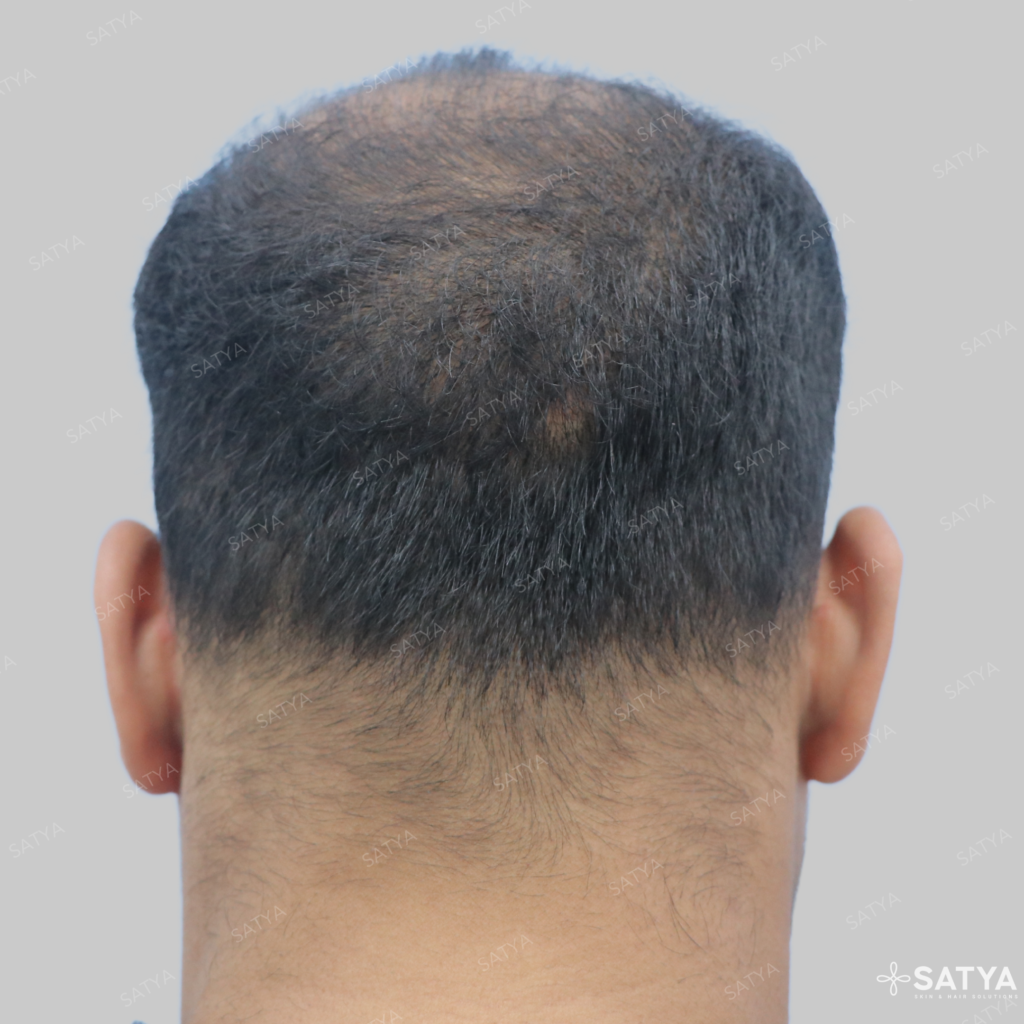 Before Surgery
Before Surgery Immediate
Immediate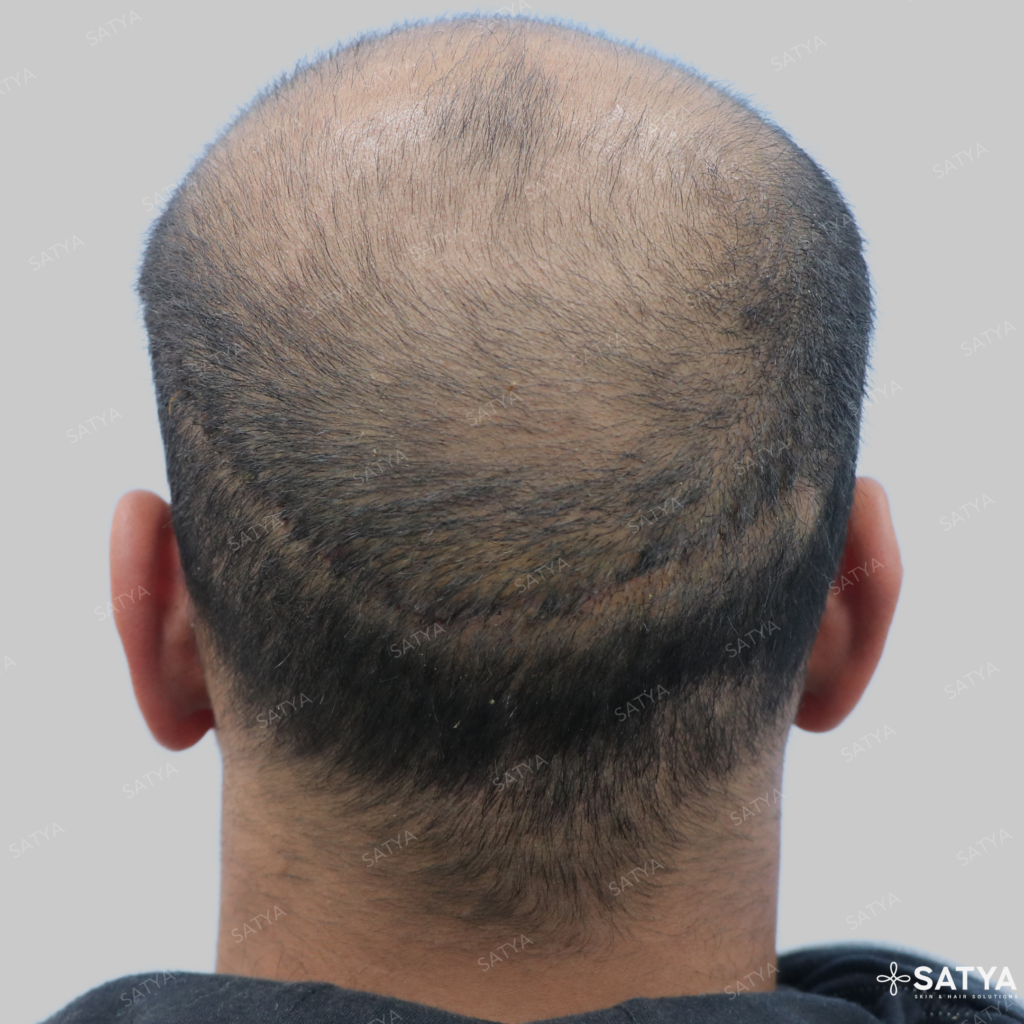 15 Days
15 Days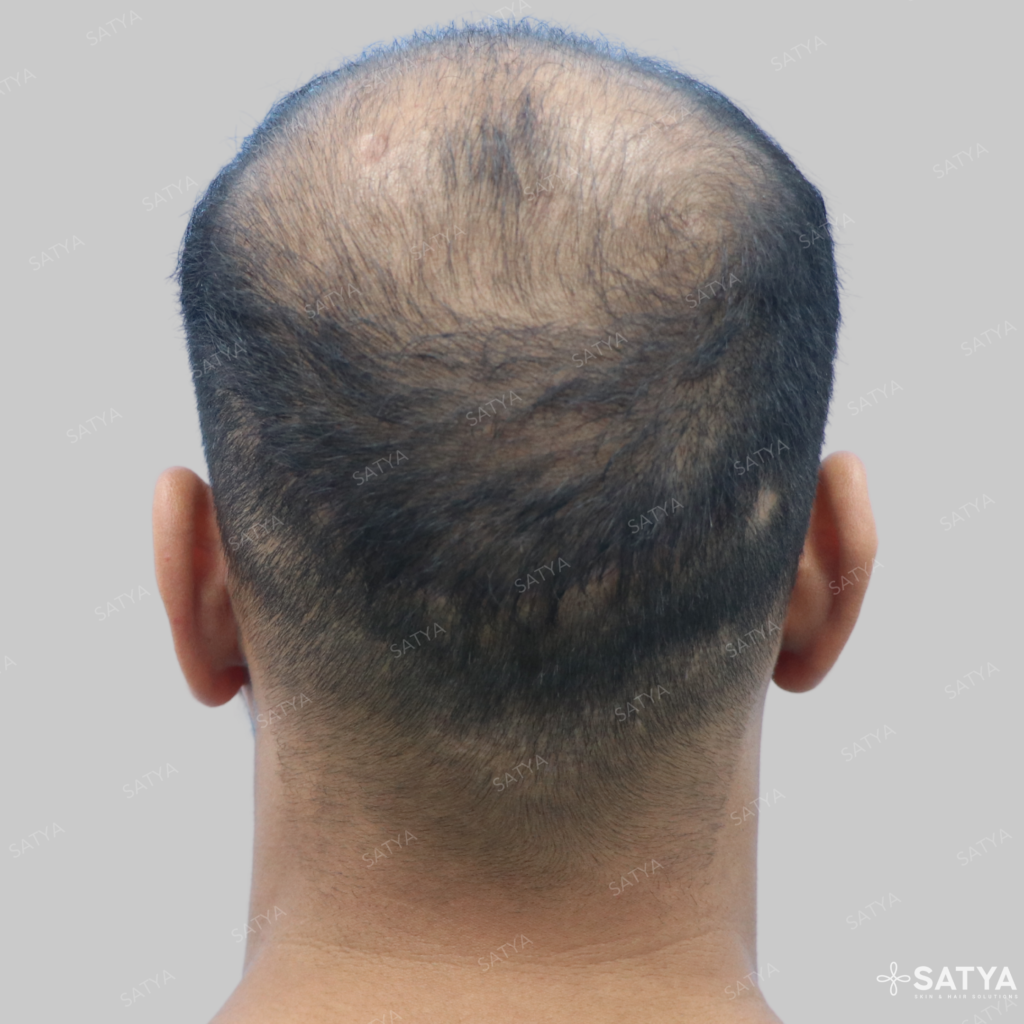 1 month
1 monthKey Concerns
* Poor hairline shape and graft placement
* Dependence on high doses of finasteride and minoxidil
* Lack of clarity on medication’s role and duration
* Excessive use of donor grafts for a low hairline
* Neglect of other treatment options like FUT
Key Takeaways
* Ensure clarity on the role and duration of medications in transplant results.
* Avoid being misled by advertisements and low prices.
* Understand that hair transplant is a journey requiring careful planning.
* Choose clinics that provide transparent information and skilled execution.
* Learn from others’ mistakes to make informed decisions.
Lokesh’s journey underscores the critical importance of having the right information and planning
for hair transplant surgery. At Satya, we are committed to guiding our patients through this process
with transparency, skill, and a commitment to long-term success.
Synopsis: Lokesh Lohia’s Hair Transplant Journey
1. Initial Struggles: Lokesh’s initial hair transplant failed, and medications masked the poor results.
2. Unsatisfactory Results: Poor hairline shape and incorrect graft placement necessitated a repair.
3. The Role of Medication: High doses of finasteride exaggerated the initial results, which vanished
after stopping the medication.
4. The Solution at Satya: Reduced medication, redesigned hairline, and improved overall
appearance.
5. Key Takeaways: Importance of clear information on medication, avoiding misleading clinics, and
understanding the long-term nature of hair transplants.
Read more to learn about Lokesh’s journey, the challenges of hair transplants, and how Satya Skin &
Hair Solutions can provide the expertise and ethical treatment you need.
Meet with our board certified doctors to diagnose your hair loss and discuss treatments. Schedule A Physician Consult
Explore our insightful blogs on hair loss transplant today! Read Blogs
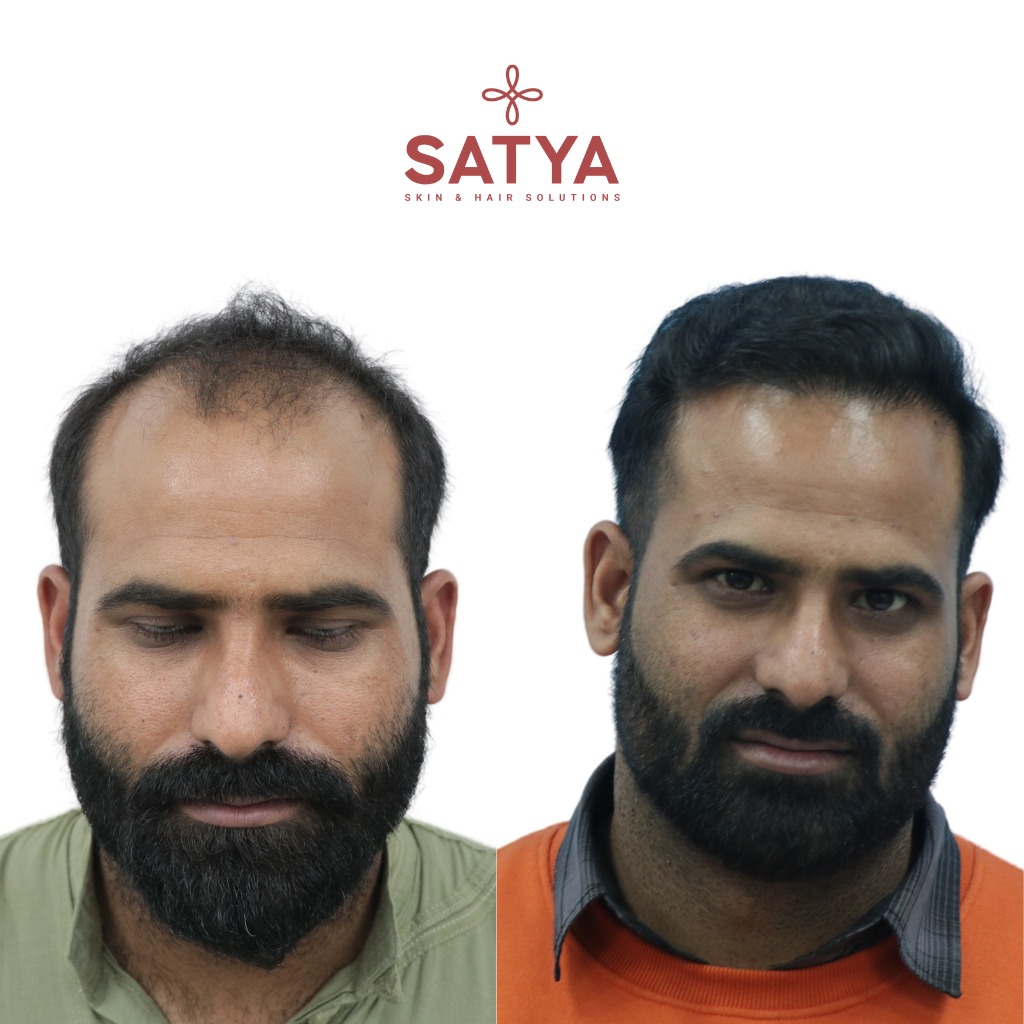
Results that inspire and Transform photos of our
patients. Explore Galleries
Take Our Quick
Hair Loss Quiz
Find out the best treatment for your
hair loss today


